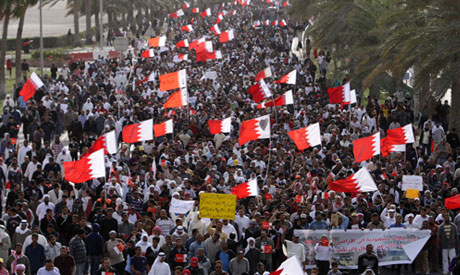Manama in Crisis

The heads of the Persian Gulf Cooperation Council gathered this week in Manama, the scene of popular protests during the past two years, to hold their 33rd summit. This summit was held under conditions where the arrival of the wave of popular Arab uprisings at the southern shores of the Persian Gulf cannot be denied. Behind the closed doors of their luxurious palaces, the Sheikhs of the Persian Gulf can no longer claim that everything is calm in their countries. At least two member countries of the council (Bahrain and Kuwait) are faced with people's protests daily. Since two years ago, the United Arab Emirates has expressed its hostility towards the Muslim Brotherhood as a movement which threatens the traditional Arab governments.
According to Arab media, the Cooperation Council summits during the past 33 years have been among the least qualitative Arab summits and the heads of this council have shown their inability in making the simplest decisions, including economic evolvement, common market, and common currency. The controversial Saudi proposal with regard to the political unity of the council members has been on the agenda of the council since last year, but no country except Bahrain, which feels threatened, has welcomed this plan. A show of respect for the status of Saudi Arabia by the smaller countries necessitates that this proposal remain on the council's agenda. But it is obvious that this proposal is a hallucinatory initiative to remove an immediate threat. The interesting, and at the same time, funny point in this year's discussions among the heads of the council was their reference to the Arab developments and uprisings. In their final statement, they have expressed their support for the democratic developments and national constitutions in Tunisia, Libya, and Egypt and have asked for Bashar Assad's resignation from power in Syria!
In reaction to the positions of the heads of the council, the people have the right to ask: If democracy and national constitutions are good for the people of Egypt and Tunisia, why aren’t they suitable for their own people who have to tolerate some of the most back-warded political systems of the world, systems in which all the doors for people's participation in determining their destiny are closed? The government of Bahrain, during the last two years, has attempted to hold international summits and conferences, such as the Manama Dialogues and Formula 1 car races, to pretend that everything is calm in this country. But who can ignore people's protests, with several thousands of participants in the streets of Manama and other cities and villages of Bahrain? All of these different international events are held and the rulers make their disappointing official statements, but in the end, it is the loud voice of the people which attracts reporters and the media. The Council Summit in Manama cannot cover up the blatant human rights violations on this island and help to solve the crisis between the government and the people of Bahrain. Official guests come and go, but it seems impossible for the people of Bahrain, after bearing two years of severe suppression, to retreat from their demands.
If today the heads of the Council talk about the democratic trend in Egypt, Tunisia, and Libya, they must remember that not even the support of foreign countries for former dictatorships in these countries was able to prevent people from achieving their goals. The key to the crisis in Bahrain is in the hands of the people of this country and the government. The main opposition of the Bahraini government has not yet lost its hope in reaching an agreement with it and expresses its support for serious talks. But there is a fear that, due to the government's inaction and its hope for foreign support, the opposition will no longer be able to contain people's anger.

